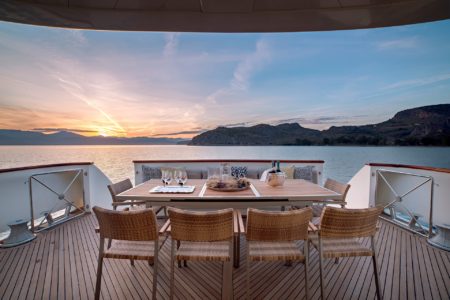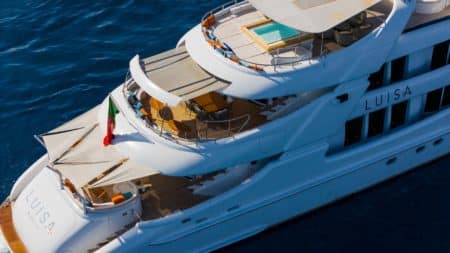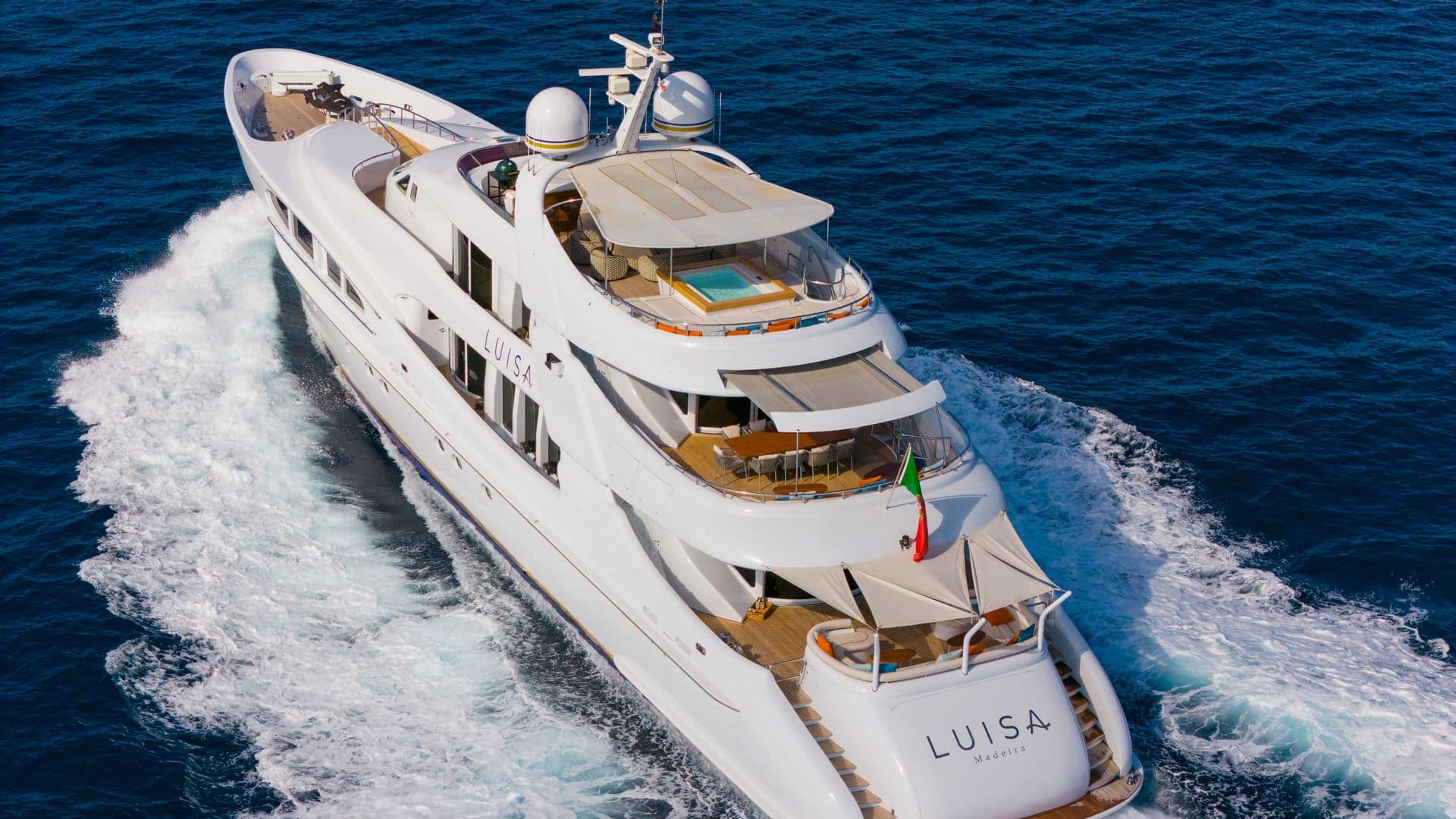Just a few years ago, the race for gigantism in the world of yachting was the order of the day. Owners wanted ever bigger, ever more sumptuous boats. But this trend has given way to a new generation of yachts. For some time now, yachts have been undergoing an unprecedented revolution, thanks to major technological and ecological innovations. For enthusiasts and professionals alike, staying on top of the latest advances is essential if they are to take full advantage of these developments. If you’d like to find out more, we can help by exploring new yacht designs, innovative engines and propulsion systems, cutting-edge equipment, and autonomous and eco-friendly yachts.
The yachts of tomorrow: what materials are they made of?

To appeal to the widest possible audience, new boats need to combine lightness, strength and ecology. To achieve this, the use of carbon fibre and recycled materials offers significant advantages in terms of durability and reduced environmental footprint. These materials also deliver improved aerodynamic design, in line with current trends in interior and exterior design. Optimising space and comfort on board is also a priority. The result is yachts that are not only more efficient, but also more pleasant to live with.
At the same time, the integration of new navigation and communication technologies will transform the sailing experience. These technological innovations will offer new functionalities that will change the way sailors interact with their environment and manage their crossing. Artificial intelligence will become a valuable ally in ensuring safer, more precise navigation. Advanced communications systems will make it easier to connect and interact on board. These innovations will turn tomorrow’s yachts into masterpieces of technology and sustainable design.
Revolutionising yachting with innovative engines and propulsion systems?
The transformation of the yachting industry includes the adoption of hybrid and electric engines. These technologies offer significant advantages in terms of ecology, by reducing CO2 emissions. Recent models such as the Silent 60 and the Greenline 39 are perfect examples of these advances.
Alternative propulsion systems, such as hydrofoils and innovative sails, make a significant contribution to reducing fuel consumption while improving performance. The Energy Observer’s hydrofoil provides the opportunity for faster, more energy-efficient sailing. The energy management systems and integrated solar panels go even further, optimising energy efficiency. The result is a more sustainable and economical use of resources.
Cutting-edge equipment and functions

Today’s modern yachts incorporate advanced security, surveillance and systems technologies. These are designed to enhance the sailing experience and comfort on board. Automation and navigation assistance systems make these vessels autonomous, or at least semi-autonomous.
In terms of comfort, these new trends include state-of-the-art entertainment systems. In the space of just a few decades, the living spaces inside yachts have been completely redesigned to become veritable floating leisure centres. Whether it’s lighting, air conditioning or household appliances, home automation is now essential on board, making it easier to control the ship’s systems. All these innovations mean that tomorrow’s yachts will be havens of luxury and advanced technology, meeting the expectations of the most demanding sailors.
Resolutely greener yachts!
In recent years, the yachting industry has become increasingly aware of the impact it can have, particularly on the sea. With this in mind, the yachting industry has radically changed its face, turning to more environmentally-friendly fuels and energy sources. The use of biofuels and renewable energy, such as solar and wind power, is booming, offering the opportunity to significantly reduce CO2 emissions. Technological gems like the Silent 60, powered by solar panels, are a perfect illustration of this progress.
Waste management on board has not been forgotten either. Innovative systems such as waste compactors and incinerators have been developed to sort and treat waste efficiently and minimise the environmental footprint of yachts. By integrating these technologies and practices, these giants of the seas of tomorrow will no longer be just symbols of luxury and performance, but also models of sustainability and respect for the environment.







 Thanks to Arthaud Yachting, access our world of luxury yacht charter for a 100% tailor-made cruise in the French Riviera region or even in the four corners of the world in destinations such as
Thanks to Arthaud Yachting, access our world of luxury yacht charter for a 100% tailor-made cruise in the French Riviera region or even in the four corners of the world in destinations such as 


Leave A Comment